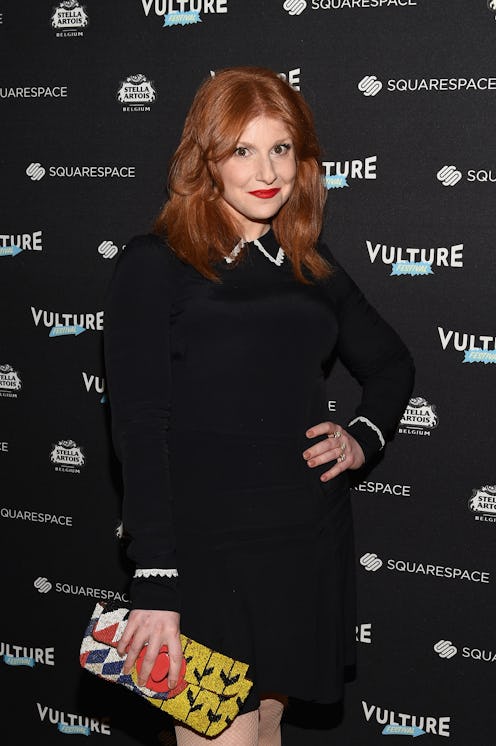Entertainment
'Difficult People' Has A Refreshing Female Lead
When looking back at the past decade of television, there's no doubt that a dominant theme is male antiheroes: Breaking Bad's Walter White, Mad Men's Don Draper, and the granddaddy of them all — The Sopranos' Tony Soprano. The drug kingpin, philandering advertising executive, and New Jersey mobster are all "difficult people" — and all male. That, specifically, is what makes Julie Klausner and Billy Eichner's sitcom Difficult People so important: It promises to give us hilarious "antiheroes" that are not straight white men. This is an exciting entry into a growing trend of richer roles for women, in both comedy and drama.
While there have been shows with strong female protagonists, they are more often than not "good," aspirational, and pure — and, most importantly, not entitled to the same rich psychological portraits that males on TV get. Recent shows have pushed against the unfair expectations of women on TV (which are much like the unfair expectations of women in real life) and have began giving us psychologically complex and exciting antiheroes. This is apparent in both comedy and drama: comedies like Girls, and now Difficult People, portray women behaving badly, being rude and speaking their minds — in other words, they show women being human.
Of all the many shows that are on television right now, many of them have female protagonists who have pushed the boundaries and advanced for a richer characters for women on TV.
Check out the Difficult People trailer here, and the other great "difficult" females of television.
Hannah Horvath, Girls
The premiere of Girls is what prompted the conversation about likability, and society's expectations of female characters. People were critical of Hannah's selfishness and immaturity, which nobody said about the protagonist of another show which followed a bunch of predominantly male, superficial friends in New York: Seinfeld.
Gretchen Cutler And Lindsay Jillian, You're the Worst
Commitment-phobic, immature, and — yup — selfish, Gretchen is one of "the worst" people that the title refers to, which is precisely why I love her. The flighty and vain Lindsay is also a terrible role model for the way she treats her husband, but it's never over-the-top — instead, it's honest.
Piper Chapman, Orange Is The New Black
Season 3 of OITNB was all about Piper's transition to full-on manipulative villain, which is a far cry from where she started as a fish-out-of-water in prison. Orange is the New Black shows a wide range of women displaying a wide range of behaviors, and it's always, always honest.
Rachel Goldberg, UnREAL
Manipulative, ambitious, and struggling with mental illness, Shiri Appleby's Rachel on UnREAL is the female antihero on a drama that we've been waiting for. There are moments I agree with her actions — and others when I really, really don't. That's the beauty of the show: the characters are complex and corrupt. (It's sort of ironic that the most "real" female characters on TV this summer are on a show called UnREAL, isn't it?)
Selina Meyer, Veep
Crude, power-hungry and "unladylike," President Meyer is not somebody you'd want as your bridesmaid — which is precisely what makes her an incredible character.
Annalise Keating, How To Get Away With Murder
Professor Keating would not be defined as "likable" in the traditional sense because she is not morally pure or compassionately motivated — but that's precisely what makes her one of the most compelling characters on television. Keating is a lawyer through and through: inspired by the challenge, not the client.
Valerie Cherish, The Comeback
She's not exactly your lovable goof like Phoebe Buffay. You don't want to be friends with her. Valerie is out of touch and incredibly vain, as the comeback of The Comeback showed us.
It's no coincidence that the Emmy nominations for Outstanding Actress in both comedy and drama honor characters like Selina, Annalise, and Valerie. The roles for women are getting deeper and more interesting — something that's hopefully indicative of a growing trend.
Images: Getty Images (1), Giphy (6), FX (1)
